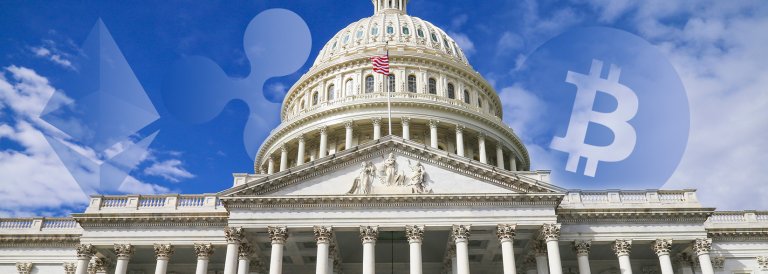 Why U.S. Congress Won’t Pass Crypto Bills Anytime Soon
Why U.S. Congress Won’t Pass Crypto Bills Anytime Soon Why U.S. Congress Won’t Pass Crypto Bills Anytime Soon

Photo by Louis Velazquez on Unsplash
According to Jake Chervinsky, a government enforcement defense and securities litigation attorney at Kobre & Kim LLP, as of now, the U.S. Congress will not be passing a crypto bill in the foreseeable future.
Had drinks yesterday with a friend who's deeply connected in DC.
Me: "what do you hear about crypto on the Hill?"
Him: "nothing."
Me: "nothing at all?"
Him: "literally nothing. Nobody talks about it. Never comes up."I don't expect any big movement from Congress any time soon.
— Jake Chervinsky (@jchervinsky) September 28, 2018
However, inaction from the US Congress and the federal government is not necessarily negative. It simply means that as Chervinsky explained, there is not enough money in the space to form lobbying infrastructure to get the Congress to pass legislation.
Chervinsky said:
“There’s no money behind it yet. Like it or not, if you want to push legislation through Congress, you need lobbying infrastructure. The friend I mentioned is a fairly savage political operative. His question is basically ‘who’s gonna to pay me to get this done?’”
Passing Legislation and Regulating Crypto Market are Different
The US cryptocurrency exchange market is already well regulated. Major trading platforms such as Coinbase and Gemini are widely acknowledged as compliance-focused cryptocurrency businesses that direct their efforts towards bringing regulatory certainty into the global cryptocurrency market.

The recent efforts of Coinbase to integrate more tokens and alternative cryptocurrencies into its platform under full compliance with local regulations and the US Securities and Exchange Commission (SEC) demonstrate the intent of the US government to properly regulate the space to reduce the likelihood of criminals utilizing the market to funnel illicit funds.
On June 14th, William Hinman, the director of the division of corporation finance at the SEC, opined that Ethereum is not a security under local laws:
“Based on my understanding of the present state of ether, the ethereum network and its decentralized structure, current offers and sales of ether are not securities transactions.”
However, SEC Chairman Jay Clayton recently clarified that staff statements are nonbinding:
The Commission’s longstanding position is that all staff statements are nonbinding and create no enforceable legal rights or obligations of the Commission or other parties. Statements issued by SEC staff frequently include a disclaimer underscoring the important distinction between the Commission’s rules and regulations, on the one hand, and staff views on the other.

While Joseph Lubin, Vitalik Buterin, Charles Hoskinson, and the rest of the founding members of Ethereum expressed their confidence in the decentralized structure of the digital asset, the SEC could have identified Ethereum as a security to restrict the development of the blockchain in the US market.
The approval of a piece of cryptocurrency and blockchain-related legislation to solidify existing federal and state-level regulatory frameworks surrounding the emerging asset class could have a positive impact on the market’s long-term growth.
But, there already exists sufficient regulations and clarity regarding cryptocurrencies in the US market.
Ripple Wants to Pay
Not all hope is lost with the approval of cryptocurrency-related legislation. On Sept. 28, Ripple formed a coalition of fintech startups and blockchain projects to convince the Congress to pass the country’s first cryptocurrency legislation.
As Chervinsky emphasized, until this year, there were no consortia, coalitions, and companies willing to work with lobbyists in Washington D.C to lead discussions around cryptocurrency regulation.
Beginning this month, the coalition led by Ripple will pay the Klein/Johnson Group, a new bipartisan lobbying and public policy firm located in Washington, D.C., around $25,000 per month and 10,000 XRP.
Chris Larsen, the billionaire executive chairman of Ripple, said:
“We understand this is really complicated, and there is a lot of misinformation out there. he good news is there is a lot of interest in this topic in D.C. It gives them some upside and gives them some risk,” he said. “Hopefully it gives them a taste of the industry in a way that hits home.”
Depending on the work of Ripple and its coalition, the probability of getting the first crypto-related legislation in the US approved could increase substantially in the months to come.
Correction: Added SEC Chairman Jay Clayton’s recent clarification regarding SEC staff public statements.



 Farside Investors
Farside Investors 


 CoinGlass
CoinGlass 




























































































